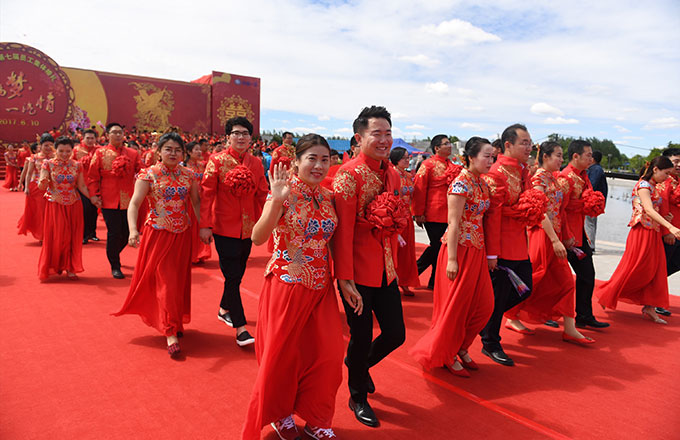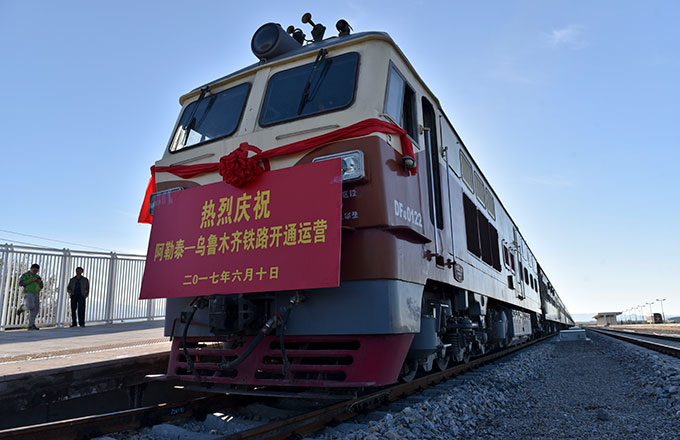Science and technology constitute a primary productive force
September 5 and September 12, 1988
I
The world is changing, and we should change our thinking and actions along with it. In the past we pursued a closed-door policy and isolated ourselves. How did that benefit socialism? The wheels of history were rolling on, but we came to a halt and fell behind others. Marx said that science and technology are part of the productive forces. Facts show that he was right. In my opinion, science and technology are a primary productive force. For us, the basic task is to maintain socialist convictions and principles, expand the productive forces and raise the people's living standards. To accomplish this task, we must open our country to the outside world. Otherwise, we shall not be able to stick to socialism. In the 1950s, for example, the gap in technology between China and Japan was not great. Then we closed our doors for 20 years and made no effort to compete internationally, while during the same period Japan grew into an economic power.
II
From a long-term point of view, we should pay attention to education and science and technology. We have already wasted 20 years when we should have been developing. If we paid no attention to education, science and technology, we would waste another twenty years, and the consequences would be dreadful to contemplate. When I met with Husak recently, I mentioned that Marx was quite right to say that science and technology are part of the productive forces, but now it seems his statement was incomplete. The complete statement should be that science and technology constitute a primary productive force. The future of agriculture will eventually lie in bioengineering and other highly advanced technologies. So we must recognize the full importance of science and technology. We should put more money and effort into developing them and into developing agriculture and education. We should try every way to expand education, even if it means slowing down in other fields.
We must try to increase the material benefits for the few top intellectuals. If we arouse their enthusiasm and show them more respect, they will make more contributions. Haven't we developed the atomic bomb, the hydrogen bomb, satellites and space technology on our own? The engineering of the electron-positron collider that we have completed also ranks among the world's most advanced technologies. The wages of intellectuals must be raised step by step over the next few years, so they will have something to look forward to. I am told that an old professor at Beijing University said recently, ``My salary has remained the same as it was when the People's Republic was founded. But with the way prices have gone up, my standard of living has dropped by two thirds.'' No matter how many difficulties we have, we must try to improve the treatment of teachers.
If we do that, it will affect our intellectuals in other countries too. We have tens of thousands of students studying abroad, and it is important to create suitable conditions for their work after they come back. Some students who have returned have been unable to find appropriate work or even a unit to accept them, because we simply aren't doing any research in some of the areas they have been studying. We could establish a comprehensive scientific research centre that would include certain specialities; or we could add some specialities in existing research institutes and universities. If we arrange for such people to tackle specific projects in these places, surely some of them will achieve great things. Otherwise, these people will not come back, and it will be a great loss to the country. Another important aspect of reform is to redistribute the funds allocated to science and education. Since science and technology constitute a primary productive force, and since intellectuals, who during the ``cultural revolution'' were called the ``ninth category'', are part of the working class, we should raise them to first place.
These are my thoughts on education, science and technology and the treatment of intellectuals. I have expressed them as a strategic concept or measure. From a long-term point of view, it is time for us to set about solving this problem.
(Excerpt from a talk with President Gustav Husak of Czechoslovakia and excerpt from remarks made after hearing a report on a tentative programme for the reform of prices and wages.)
(From Selected Works of Deng Xiaoping, Volume III <1982-1992>)
- China issues guidelines to develop 'all-for-one' tourism demonstration zones
- Torrential rain triggers disaster in Southwest China
- Harvest time for wheat reapers in Shanxi
- Over 200 couples marry in Changchun group wedding
- Calligraphy tops other icons of Chinese culture, WeChat data shows



















